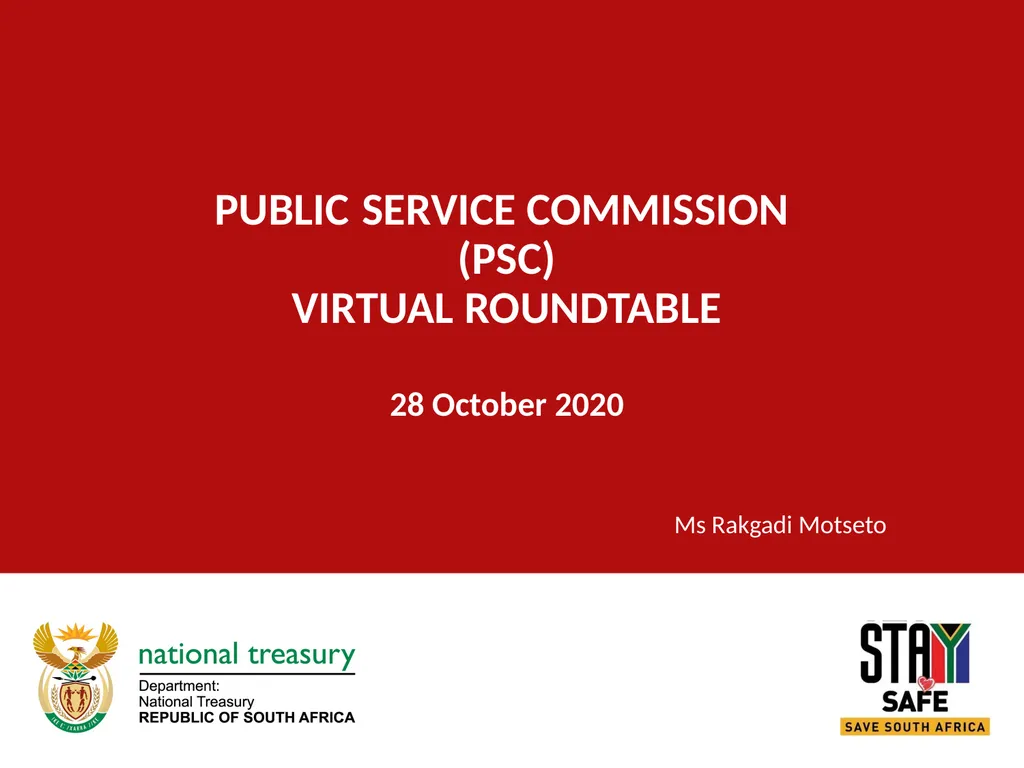
Author : jane-oiler | Published Date : 2025-05-30
Description: Public Service Commission (psc) Virtual Roundtable 28 October 2020 1 Ms Rakgadi Motseto BACKGROUND Supply Chain Management or Public Procurement should be viewed a system; It is build on a chain of strategic decisions and actions; ADownload Presentation The PPT/PDF document "" is the property of its rightful owner. Permission is granted to download and print the materials on this website for personal, non-commercial use only, and to display it on your personal computer provided you do not modify the materials and that you retain all copyright notices contained in the materials. By downloading content from our website, you accept the terms of this agreement.
Here is the link to download the presentation.
"Public Service Commission (psc) Virtual Roundtable"The content belongs to its owner. You may download and print it for personal use, without modification, and keep all copyright notices. By downloading, you agree to these terms.













